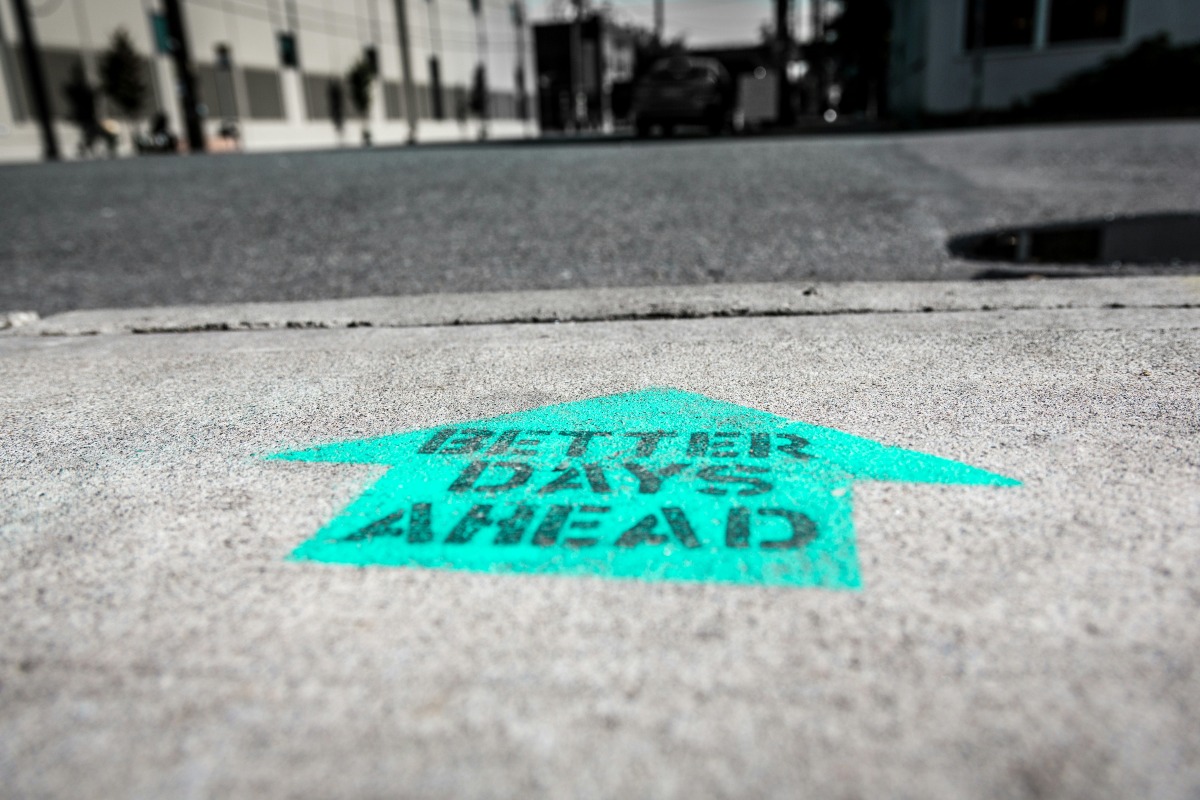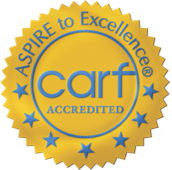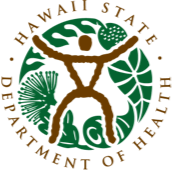Navigating the effects of drug use and addiction is complicated. While any illicit drug use can come with a myriad of challenging side effects and health risks, overdoses on drugs can be some of the scariest moments of addiction, especially when it is happening to a loved one. Identifying the signs and effects of overdose is just the first step in what family members can do to support a loved one going through an addiction. Knowing what to do in the moment to help a loved one through an overdose and how to continue to support healing afterward is necessary to facilitate change and prevent future destructive outcomes.
What Is an Overdose?
Overdose occurs when a person uses too much of a drug for the body to process, overwhelming the body so much that it causes it to shut down. For some, overdoses on drugs involve taking excessive amounts of a drug in a single sitting, while others may overdose due to an increased frequency of use. It is also common to overdose by combining dangerous substances, such as using multiple drugs at the same time or using drugs alongside alcohol, accentuating each of their effects and increasing the chances of an overdose.
Overdoses on drugs are always possible, regardless of the drug being used. Opioids, prescription medications, and marijuana can all cause an overdose with a range of effects. While overdoses on drugs like marijuana are not typically fatal, they can cause a myriad of unhealthy and unwanted side effects. However, in the case of opioids, heroin, fentanyl, and other drugs, these overdoses can be life-threatening and demand immediate attention.
Lastly, while overdoses on drugs are typically accidental, where a person unintentionally takes too much of a drug or combination of drugs and experiences these intense effects, not all overdoses are necessarily unintentional. In cases of intentional overdose, exploring drug treatment programs alongside effective mental health and suicide prevention strategies is necessary to engage in effective healing.
What Are the Signs of a Loved One Who Overdoses on Drugs?
Being able to recognize the signs of an overdose is the first step to taking potentially life-saving action for a loved one. Some of the signs of a potential overdose include:
- Slowed breathing or heartbeat
- Unresponsive to stimuli, such as verbal questions or touch
- Unconsciousness
- Confusion and irritation
- Pale skin
- Blue lips and fingertips
- Poor coordination
- Slurred speech
- Nausea
- Vomiting
- Hallucinations
- Paranoia
- Irregular breathing pattern
- Limp body
While the exact effects of an overdose can depend on a few factors, including what drug or drugs were used, at what intensity, if alcohol is involved, and more personal factors, overdose is always a cause for concern.
A loved one also does not have to exhibit all of these signs to be experiencing an overdose. Recognizing even some of these potential signs can be a reason to call 911 and contact emergency medical services. If overdose is even a consideration, it is important to err on the side of caution for the life and health of a loved one. Overdoses on drugs are scary, and being ready to contact medical services quickly can be incredibly important.
Helping a Loved One Who Overdoses on Drugs
Recognizing these signs of an overdose is incredibly stressful, and it can be intense and scary. However, there are always things that family members and friends can do to help a loved one through a potentially life-threatening overdose. Acting quickly and deliberately during this time-sensitive event can make a huge difference in helping a loved one not just navigate the dangers of a drug overdose but also take action to prevent future overdoses on drugs and encourage change.
Take a Deep Breath
Recognizing the signs of an overdose in a loved one is very intense, and it is normal to feel a mix of intense emotions during this time. Fear, anxiety, panic, anger, betrayal, resentment, and more are all completely normal to experience. Taking a deep breath to collect these emotions before acting can be essential to providing effective support during this time. Making the most educated decisions and avoiding acting out of anger or other intense emotions are necessary, as well as ensuring that each person can enact the best support, analyze, and address the situation despite its stressful nature.
Make the Call if a Loved One Overdoses on Drugs
Recognizing even a couple of the above signs of overdose, especially when a loved one is already suspected of using drugs or is known to be engaging in illicit drugs, can be a reason to make the call to emergency services. It is much better to be overly cautious, just in case.
Making the call in the event of even a suspected overdose in a loved one can also provide another supportive voice to navigate these trying scenarios. Emergency dispatch can often help provide direction and support over the phone while medical professionals are on their way, ensuring the best possible support for a loved one.
Clear the Location
Making the call can get professional help to the scene as quickly as possible. Clearly stating the location of a loved one, including not just the address or notable landmarks but also where inside a building or proximity a person is, is incredibly important. Clearing the space of obstacles, people, and other barriers can further help emergency medical professionals get to the scene as quickly as possible.
Observe and Share Signs of Overdoses on Drug
It is also important to share as much information as possible. Looking for the substance or substances used that may be on or near a loved one and sharing the exact symptoms of overdose that caused the call can all be important information so that emergency personnel can arrive on the scene with the most appropriate equipment and plan to provide the necessary life-saving measures as quickly as possible.
Checking the body for additional signs of overdose that may not have been immediately apparent or any changes or updates in the situation is also important, so staying with a loved one during this time is paramount.
Turn a Loved One on Their Side
If a loved one is having trouble breathing or is unconscious as a result of an overdose, turning them on their side can be essential. Clearing the mouth and airways of blockage and turning a person on their side can help prevent choking, especially on any vomit.
Administer Naloxone if a Loved One Overdoses on Drugs
Naloxone is a potentially life-saving medication that is used to reverse the effects of an opioid overdose. If a loved one is suspected of using opioids such as heroin, fentanyl, or prescription opioids, then carrying naloxone on one’s person can be a life-saving precaution. Administering naloxone while making the call to emergency services can provide additional support to navigate this difficult and intense time.
Use Smart Stimuli
Trying to talk to or lightly touch a loved one experiencing an overdose to get a reaction can be a great way to measure their attentiveness, focus, and level of confusion. However, it is important to avoid slapping, shaking, or other more drastic ways of trying to either wake up or get the attention of a loved one, as this can cause unnecessary damage.
Talking About the Event After a Loved One Overdoses on Drugs
If a loved one overdoses on drugs, it is not something that can be ignored. For many, an overdose can be a major tipping point and can show the need for professional help to address drug use and addiction in a loved one. However, discussing drugs and the events that led to an overdose is necessary. These conversations can be incredibly difficult, and talking to a loved one about drug addiction can be delicate. Taking a moment to prepare oneself or calling the professionals at Hawaii Island Recovery to prepare for the conversation can be essential to making the most of the talk.
This conversation cannot be avoided, and having the help and support of trained professionals from our Hawaii drug rehabilitation centers, even over the phone, can make a difference in helping a loved one make the necessary changes and commit to a life of sobriety.
Know the Goals
Talking about drug addiction and overdose is complicated. Establishing a clear goal for the conversation ahead of time, typically getting a loved one to commit to a detox and drug addiction treatment program, can help keep the conversations focused and can structure these difficult conversations for the most effective outcome. It is normal for a loved one to attempt to deflect difficult questions or become defensive when talking about addiction. Having a clear goal can ensure a loved one has to confront the effects of a drug overdose and consider their next steps.
Creating a Comfortable Space
There is nothing easy about talking to a loved one about addiction. However, it can be even more difficult to admit the need for help. It is also possible that loved ones may realize the need for change but still find it difficult to discuss their use of drugs or alcohol, even after an overdose. Creating a comfortable space to discuss these topics is necessary to deconstruct barriers.
First, this means choosing a familiar place where a loved one will feel physically comfortable. A neutral room like the family room, or even their personal space like their bedroom, can add this feeling of comfort. Ensuring that there is also minimal noise pollution and potential for interruptions is necessary.
Next, talking calmly and compassionately is necessary. While it is normal to feel anger, frustration, and more, keeping a calm voice is important to talk about this topic. This can also encourage a degree of vulnerability and emotional safety that is necessary for honesty about drug use and addiction.
Allowing a loved one to express vulnerability and personal needs is also paramount. Avoiding judging a loved one for their use and instead allowing them time to speak about their experiences, reasons, and needs without feeling judged or silenced is part of creating a comfortable, accepting space. These conversations about drug use are still dialogues, not lectures, and approaching loved ones with respect and openness is paramount.
Have the Next Step Planned
Knowing the goals of a conversation following an overdose is important. Furthering this aspect is helping encourage a loved one to pursue treatment and professional care. Contacting Hawaii Island Recovery or local treatment facilities to familiarize oneself with their therapy programs, values, amenities, and methods can empower a loved one to choose the place they feel will best support their sober change. Having websites pulled up, phone numbers written down, or pamphlets of different options can help a loved one make the most informed decision about their sober future while deconstructing some potential barriers to treatment.
Likewise, having plans to offer other support to further this goal, such as transportation, help scheduling, and being ready to make changes at home, can help families prepare for an effective and comprehensive healing journey.
Preventing Future Overdoses on Drugs
Witnessing a loved one overdose can be a scary, traumatic, and life-changing event, both for the loved one using drugs and their families. However, committing to detox and effective treatment does not mark the end of the healing journey, even for family members. Rather, there are many things that families can do to help prevent overdose in the future.
While unfortunate, preparing for the possibility of relapse is crucial to ensure the safety and health of a loved one. Working with the professionals at Hawaii Island Recovery to develop effective relapse prevention plans is essential for helping to prevent not just future potential overdoses on drugs but also to ensure a healthy and sober life.
If a loved one does relapse, it is common to quickly reengage with drugs at a similar level as before they stopped. However, this sudden and intense use of drugs, especially combined with a decreased tolerance, makes overdose a major risk during relapse. Having a plan for who to call, consequences, and plans to recommit to treatment is necessary.
Know That Treatment Isn’t Over
Recovery and sobriety are lifelong journeys, and detox will not “cure” addiction. There is no program, treatment facility, or medication that can “solve” addiction without personal hard work and continued dedication. Supporting a loved one’s sober transformation is an ongoing journey, and being willing to undertake this journey alongside them is paramount for preventing relapse and, thus, potential overdose.
Engage in Self-Care
Being an effective and educated support is exhausting. Working to explore effective self-care options is necessary to maintain energy and prevent compassion fatigue from impacting otherwise effective supportive efforts. Eating a healthy diet, maintaining personal boundaries, setting personal and professional goals for oneself, and taking time to relax and engage in personal hobbies are all necessary to provide effective support.
For many, this can ensure that the support provided is of high quality while catering to personal needs. However, establishing an effective self-care routine can also model these practices for a loved one, encouraging them to prioritize self-care and personal needs at any stage in their sober journey.
Consider Family Therapy Programs
Overcoming addiction is a familial affair. However, when a loved one overdoses on drugs, it can be a truly life-changing event for everyone involved. Family therapy programs like those at Hawaii Island Recovery can help address the traumatic impact that these can have on a loved one and the entire family and explore the lasting feelings of anger, betrayal, and more that they can cause. Repairing these relationships affected by addiction takes time. Family therapy programs can be essential for practicing effective communication strategies, rebuilding trust, and challenging past mistakes for a healthy future.
Commit to Personal Change
Those navigating addiction and professional recovery programs are going through a myriad of changes daily, from challenging emotional needs and mental health disorders to overcoming feelings of guilt, the physical effect of drugs on their bodies, persistent urges and cravings, and much more. However, family members can also commit to their changes at home for sustainable sobriety.
This can mean introducing new cultures and schedules, such as family dinners and new holiday traditions, to helping to make physical changes around the house. Removing physical reminders of past use, repurposing rooms into hobby areas or self-care spaces, and being open to new ideas, hobbies, and other changes are all part of an effective family healing journey.
There is no easy way of processing an overdose, and these intense, life-threatening events are stressful and traumatic. However, healing is always possible. Family members and friends have important roles in helping a loved one find and navigate effective treatment. No part of recovery or overcoming addiction is easy. Having the support of those at home and dedicated professionals like those at Hawaii Island Recovery is necessary to navigate the effects of an overdose and pursue sustainable, effective, transformative change for a sober life.
There is nothing easy about overcoming an overdose, either for those using drugs and experiencing this terrifying consequence of drug use themselves or their family members, friends, and loved ones. At Hawaii Island Recovery, we understand the familial nature of effective treatment and recovery from drug addiction, and we are prepared to help entire families address the effects of an overdose. We offer dedicated professional medical detox programs to address withdrawal and empower those in recovery to navigate the challenges of recovery with the best support, all while educating family members and engaging in effective family therapy programs. For more information on our Hawaii drug rehabilitation centers, call (866) 390-5070.












